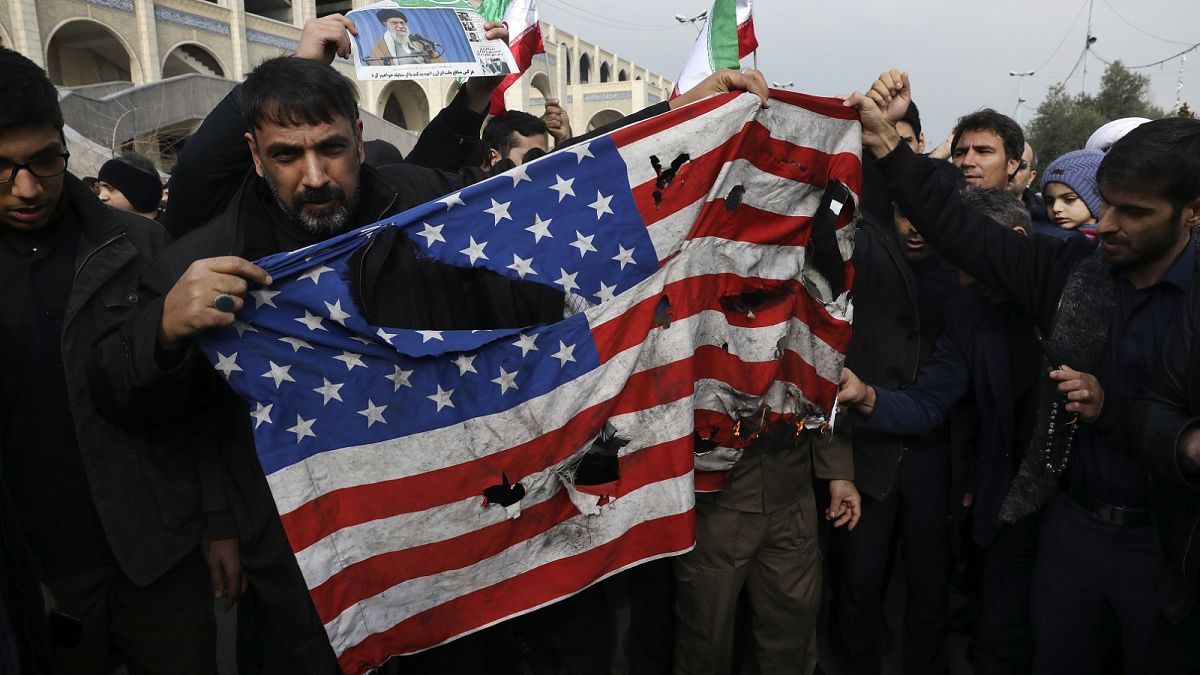European calls for restraint will not be enough on their own, argues Thomas S Warrick
What should Europeans do after the 2 January airstrike that killed an Iranian general in Baghdad? The United States acknowledged it struck Major General Qassem Soleimani to prevent terrorist attacks by Iranian proxy militias against American diplomatic and military targets, and in retaliation for two decades of attacks against Americans by forces under Soleimani’s command.
The transatlantic reaction was sharply divided, reflecting the gulf between the American and European views of Iran since the Trump administration pulled the US out of the Iran nuclear deal in May 2018.
President Trump tweeted on Friday morning that: “He should have been taken out many years ago!” France’s Secretary of State for European Affairs said: “We have woken up to a more dangerous world,” and, “The priority is to stabilise the region.” EU High Representative Josep Borrell said: “The EU calls on all the actors involved and on those partners who can have an influence to exercise maximum restraint and show responsibility in this crucial moment.”
Calls for restraint alone are not likely to succeed. What Europe does next will be more important.
A first step is strategic clarity in understanding the nature of Iranian regional political ambitions and the choice facing the Trump administration over what the United States should do next in Iraq.
Iranian security — and Soleimani’s military career — had thus far been focused on two hugely dangerous ideas. The first is the creation of strong proxy military forces that are outside of the control of any government. The Iranians did this to themselves after the 1979 Iranian Revolution, they built up Lebanese Hezbollah in Lebanon in the 1980s and they did this through the Huthis in Yemen. And this is what General Soleimani and his proxies were working on in Iraq using groups like Kataib Hezbollah, whose leader was killed alongside Soleimani.
The second dangerous idea is that Iran’s help is given almost entirely to its Shia co-religionists. While aid given by Europe or the US typically goes through international organisations, national governments or respected charities, Iran gives hundreds of millions of dollars a year to groups that benefit only those Shias who show some degree of loyalty to Iran.
Together, this is a toxic mix. It increases conflict in a country like Iraq or Lebanon when an outside player like Iran so strongly arms, funds, and empowers one sectarian group. Other groups feel justified in arming themselves or, worse, turning for protection to groups like so-called Islamic State that are much, much worse. Other regional governments, like Saudi Arabia, look on Iran as a threat because they see Iran promoting instability. Countries like Israel are directly threatened by Iran and Soleimani, who gave Lebanese Hezbollah advanced missile guidance technology.
Iran’s model is leading to unending conflict in the Middle East - to Europe’s detriment. Iran or Iranian-sponsored groups have carried out terrorist attacks or plots in Germany, France, Bulgaria, Cyprus and elsewhere. Conflicts with other Arab countries threatens the closure of the straits of Hormuz or oil facilities in Saudi Arabia, jeopardising Europe’s energy supplies. Conflicts aided by Iran force refugees from their homes in the Middle East towards Europe, straining European generosity and social cohesion.
Whatever one’s views of the Iran nuclear deal in 2015, it did nothing to address Iran’s destabilising activities in the Middle East. If Europe wants to go beyond mere calls for restraint, it needs to show a greater sense of strategic clarity in changing Iran’s approach to supporting Hezbollah and militia groups in Iraq and elsewhere. This will require Europe to show a hard sense of realism about reducing malign Iranian influence in Iraq.
The second challenge for Europe is understanding the Trump administration, because what will happen in the coming months depends on whether the United States decides to pull out of Iraq. Until now, President Trump has told his base of supporters that he wants to bring America’s military home from the Middle East. However, he has also told his supporters that he wants to stop Iranian threats to the US, Israel and their allies. Thursday’s attack will likely lead to Iran forcing President Trump to choose which is more important to him.
As long as Europe understands the choice President Trump is facing — admittedly not the one Europeans would like him to be making — Europe has a chance to influence the President’s decision.
When the Trump administration pulled out of the Iran nuclear deal in May 2018, it had only modest success in getting Europe to join in getting Iran to abandon its destabilising activities in the Middle East. European leaders should now consider whether to develop a serious, credible plan — but one European in character — to get Iran to end the campaign of building a parallel, Iranian-sponsored state within Iraq.
This would see Europe replace the United States in a number of activities like building up non-sectarian, locally-based Iraqi security forces and helping to end corruption in Iraqi ministries, even when that benefits European businesses. A strong and coordinated European-American initiative to reduce Iranian influence in Iraq, while assuring Tehran that Iraq will not be used as a base for attacks against it, would demonstrate a concrete European understanding of what it takes to achieve security in the Middle East.
Thomas S. Warrick is a Non-resident Senior Fellow with the Middle East programs at the Atlantic Council and a former Director for the Middle East, Africa, and South Asia in the Office of Policy for the US Department of Homeland Security.
**Are you a recognised expert in your field? At Euronews, we believe all views matter. Contact us at view@euronews.com to send pitches or submissions and be part of the conversation.
**
